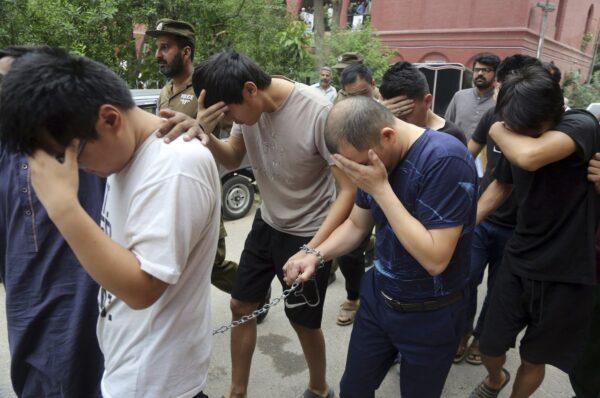An investigation into the trafficking of more than 600 Pakistani girls and women, who were allegedly sold as brides to Chinese men and taken to China in the span of 18 months, was halted over fears it would harm ties with Beijing, a report has found.
The news service obtained a list containing the names of the 629 girls and women, compiled by Pakistani investigators determined to break up trafficking networks exploiting the country’s poor and vulnerable.
The biggest case against traffickers has fallen apart, as a court in Faisalabad in October acquitted 31 Chinese nationals who were charged in connection with trafficking. Several women who police had initially interviewed refused to testify because of threats from government officials, a court official and a police investigator familiar with the case told AP.

Saleem Iqbal, a Christian activist who helped parents rescue a number of young girls from China and prevent the trafficking of others, told AP the government has been putting “immense pressure” on officials from the Federal Investigation Agency pursuing trafficking networks, effectively curtailing investigations.
“Some [FIA officials] were even transferred,” Iqbal said. “When we talk to Pakistani rulers, they don’t pay any attention.”

Authorities are refusing to follow through with investigations into trafficking in the region, and, as a result, the situation is worsening, a senior official familiar with the events told the news service on condition of anonymity.
“No one is doing anything to help these girls,” the official said. “The whole racket is continuing, and it is growing. Why? Because they know they can get away with it.”
“The authorities won’t follow through, everyone is being pressured to not investigate. Trafficking is increasing now.”
“Where is our humanity?” the official said, when questioned why he decided to speak out.
In a statement on Dec. 2 faxed to AP’s Beijing bureau, China’s Foreign Ministry said it was unaware of the list compiled by Pakistani investigators.
“The two governments of China and Pakistan support the formation of happy families between their people on a voluntary basis in keeping with laws and regulations, while, at the same time, having zero tolerance for and resolutely fighting against any person engaging in illegal cross-border marriage behavior,” the ministry said.
In China, demand for foreign brides has mounted, a legacy of the one-child policy that skewed the country’s gender balance toward males. While brides initially came largely from Vietnam, Laos, and North Korea, they have increasingly come from countries such as Pakistan and Burma (also known as Myanmar).





